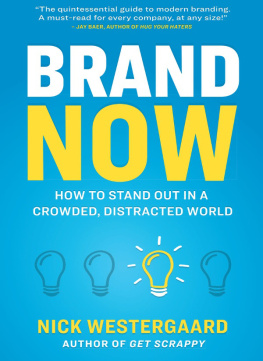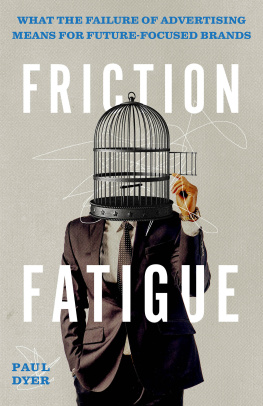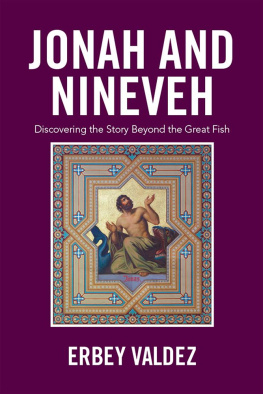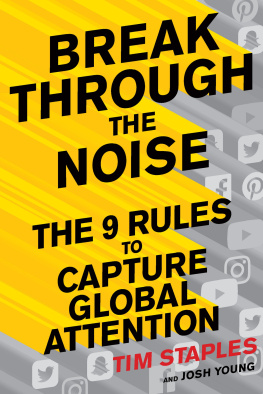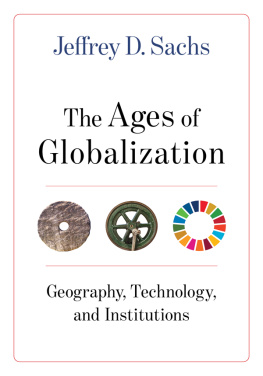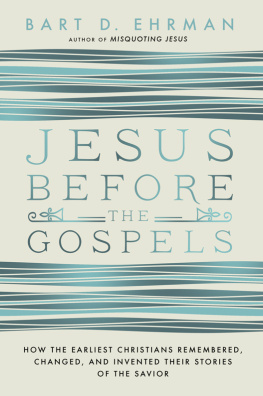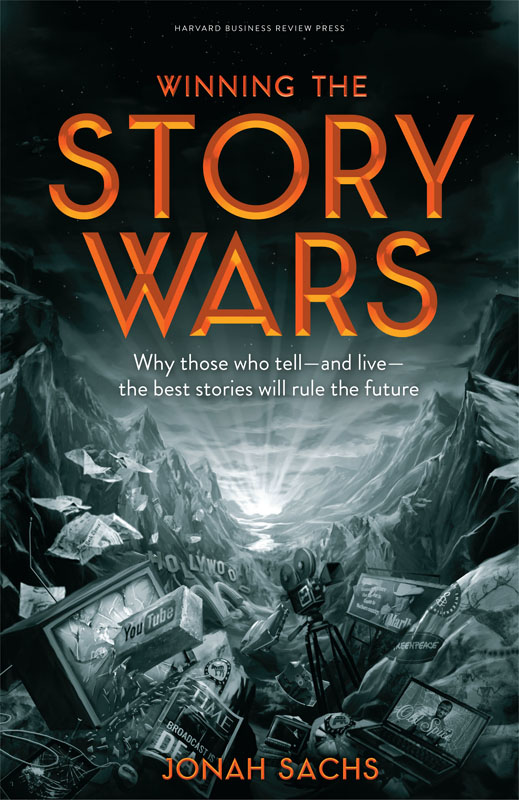You may think you know how important stories are to the success of your enterprisebut Winning the Story Wars will take your understanding to a whole new level. A crucial book in our media-saturated world.
If the idea of a marketing book based on the mythological explorations of Joseph Campbell strikes you as an oxymoron, welcome to the club. Yet Winning the Story Wars proves to be a provocative look at the power of marketing to help us all along the heros journey toward a better world.
Jonah Sachs powerfully illustrates just how broken and dysfunctional our current model of storytelling has become. We need to reconnect the vital link between higher purpose and effective story, and Winning the Story Wars shows us how.
John Gerzema, Executive Chairman, BrandAsset Consulting; coauthor, The Brand Bubble
Using stories as his medium, Sachs demystifies the art of storytelling. He illuminates the transformational social change that is possible if we, as individuals and marketers, tell stories that engage and empower everyone to design a better future.
Jonah Sachs has a gift for telling positive stories that go viral. He sat down to figure out why his best work has such resonance, then broke the answers into simple, inspiring steps. The result is a how-to book for communicators who want to change the world.
Copyright 2012 Jonah Sachs
All rights reserved
No part of this publication may be reproduced, stored in or introduced into a retrieval system, or transmitted, in any form, or by any means (electronic, mechanical, photocopying, recording, or otherwise), without the prior permission of the publisher. Requests for permission should be directed to , or mailed to Permissions, Harvard Business School Publishing, 60 Harvard Way, Boston, Massachusetts 02163.
First eBook Edition: July 2012
ISBN: 978-1-4221-4356-8
To
Mira and Orion
the stars that now guide me
A few minutes after I got home from the audition, my phone rang. I made a silent wish that it would be the director. It was.
Jonah?
Yes? I replied, trying to sound as if my nascent hopes for a career in front of the camera werent trembling on his whim.
Good news. I think youre right for the part. But there is one thing.
OK...
Were not going to use your voiceyoull be dubbed. I like the way you did the lines and you look perfect, but you sounded a little too, uh, squeaky.
Squeaky ? I felt the excitement drain out of me.
Look, Darth Vader is supposed to be the scariest guy in the galaxy. Youre just not that scary.
I was in little position to argue. At nine years old, Louis Fox was a year older than me. He was the one with the camera, the mimeographed Star Wars script, and the mother willing to drive us on endless location scouts. It was his idea to remake Star Wars , shot for shot. I was just a third-grader with a high-pitched voice.
OK, I squeaked. Ill do it.
The project, not surprisingly, took a while to get off the ground. Louis and I spent the first summer poring over catalogs filled with masks we could not afford, checking out dirt patches that failed to meet even our low standards for an extraterrestrial desert, and unsuccessfully trying to convince his bookish sister to play Princess Leia.
In fact, for twenty years, the project was on hold. But in 2005, we finally launched our own version of Star Wars on the Internet. Within a year, it would get more than 20 million views, be screened at film festivals around the world, and earn us a fan letter from Lucasfilm. And, just as hed always planned it, Louis got to do the voice of Darth Vader. Only it wasnt me that he was dubbing over, it was a Russet potato playing the part of the Dark Lord.
Our movie had morphed considerably over the years from a two-hour retelling of the classic sci-fi fantasy into a five-minute advertisement for organic food. We called it Grocery Store Wars and it starred a complete cast of bad punsCuke Skywalker, Chewbroccoli, and of course, the infamous Darth Tater. Not exactly what wed had in mind, but it was hard to argue with the results.

That disappointing phone call of two decades past was on my mind as I paced the hotel room, trying desperately to turn the presentation I had prepared into something coherent. I was about to give a lecture to five hundred eager marketing professionals looking for clues as to why Store Wars , and its equally popular predecessor The Meatrix , an exploration of the evils of industrial meat farming, had been so successful. These short spoof pieces were an experimental mix between entertainment and advertisement, and they had gotten the Internet to deliver on its promise of explosive results for very little money. Everyone knew that free distribution and easy sharing had torn down the barriers to the media marketplace. You didnt need to buy a spot on TV or rent a billboard to reach millions anymore. In those days, just before YouTube, everyone was trying to figure out how to use video to go from zero to world-famous in sixty seconds. And we had done it. We had created a piece of Internet historytwice. And I had absolutely no idea how.
I pictured myself on the ballroom stage, my movies projected behind me. At twenty-nine, I figured I looked about right for the part of young online marketing guru. And then Id open my mouth and the words that would come out would make me sound just as I had at eight.
Our ads work because theyre funny. Squeak. They work because theyre spoofs of movies people really like. Squeak, squeak. Theyre not too long?
I had always done my work on feel, following my gut to whatever excited me creatively. I paid little attention to research or processor to reflection, for that matter. This way of working had served me well. Louis and I had built a successful national creative firm focused on social change. Wed done a number of notably successful projects that pushed forward the causes of human rights, environmental protection, and socially responsible business. We just had no idea why some of our projects had become cultural phenomena while others just fizzled. And I hadnt bothered to try to figure it out before I agreed to this talk. I had just followed my gut to the edge of a cliff.
I was hit with a wave of regret that every creative person I know encounters regularly. Its the feeling of being a frauda vehicle for occasional, random, and unrepeatable success. To make matters worse, I felt I had stumbled onto the wrong stage. I had never identified myself as a marketer or intended to be one. Instead, I saw myself as a creative person with a passion for ideasideas I wanted to share to help make the world a better place. I had not yet realized that todays media landscape of unprecedented competition between messages has made us all marketers. Anyone who wants influence nowwhether its to push forward a social cause, to sell products, or simply to change the way people thinkhas no choice but to step into our global media marketplace and embrace this unlikely new job title. I embrace it now, but I hadnt then.
I needed to find my bearingsand fast.
It was in that sorry state that I googled both The Matrix and Star Wars the two films on which my successes had been basedto see what, if anything, they had in common, hoping for some clue as to why they were so powerful that even spoofs created years after their theatrical releases could capture the imagination and compel the actions of millions.


